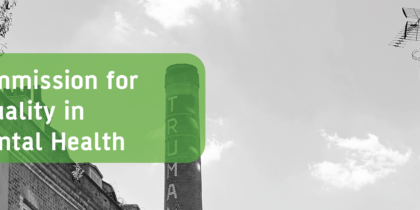2020 is the Year of the Nurse and Midwife and probably a good time to reflect on the ever-expanding role school nurses have in promotion, prevention and early intervention in children and young people’s mental health.
The School Nursing profession began in the Victorian era, providing a public health service to improve the health of children living in poverty at a time when the British Army were concerned about the fitness of young men enrolling for service. The focus was on physical health with poor nutrition identified as a key factor in poor health and the school nurse role included monitoring children’s growth.
Poor mental health is both a consequence of and contributor to health inequalities. Improving mental health and wellbeing can contribute to reducing health and social problems later on in life
In 2020, school nurses remain a crucial part of the public health workforce with a key role to improve the health and wellbeing of young people. Today, we recognise a range of influences on health and wellbeing including family, environment and health status. Poor mental health is both a consequence of and contributor to health inequalities. Improving mental health and wellbeing can contribute to reducing health and social problems later on in life, bringing with it social and economic benefits.
A recent survey of children’s mental health revealed that 1 in 8 have at least one diagnosable mental health disorder, an increased prevalence since the last survey conducted in 2004 (NHS Digital, 2018). The Children’s Commissioner (2020) highlighted concerns about the postcode lottery across the country with variation access to CAMHS services and waiting times; a third of children referred were not accepted because they did not meet the criteria to access specialist services. The same report estimates that around 1 million children each year will need access to lower level services. However, such provision is fragmented due to lack of system clarity and repeatedly slashed Public Health funding, resulting in around a 30% loss of qualified school nurses across the country. These services are funded through a combination of NHS, Local Authority, Public Health and voluntary sector organisations. Whilst Government have set out plans to invest in specialist services, there is no clarity about how lower level service will be funded and delivered. The LGA (2020) concurs with concerns about funding and a strategic direction solely focused on specialist services. It expresses additional concerns about the lack of commitment to early intervention and reduction in the capacity of universal services, including school nurses.
around 1 million children each year will need access to lower level services. However, such provision is fragmented due to…repeatedly slashed Public Health funding, resulting in around a 30% loss of qualified school nurses across the country
Commissioned by public health funds, school nurses lead the delivery of the Healthy Child Programme 5-19, which sets out good practice guidance for prevention and early intervention, including resilience and emotional wellbeing. School nurses are registered nurses with an additional post registration qualification in Public Health Nursing, many with additional skills, experience and qualifications in young people’s mental health. This makes school nurses well placed to provide health promotion, prevention and early intervention to improve young people’s emotional health and mental wellbeing. School nurses are trusted and valued by children and young people, have the flexibility to work with them in school and community settings, and provide holistic assessment of needs. They take strengths-based approaches and work in partnership with children and their parents to encourage behaviour change which sustains positive health change.
So, what does this mean in practice? Here are just a few of the examples of the work of school nurses:
- Northamptonshire School Nurses work with education to deliver a programme of workshops using the ‘Five Ways to Wellbeing’ to improve community resilience.
- Walsall School Nurses have partnered with a local grammar school which has developed a peer educator programme, delivering wellbeing lessons to year 6 pupils. The school nurse service offers workshops which run alongside the pupil sessions, which aim to improve parent/carer understanding of topic areas such as digital detox and how to implement strategies at home.
- Doncaster School Nurses have introduced an e-Clinic app to improve access for young people to speak to a school nurse via instant messaging.
- Leicestershire developed Teen Chathealth text service and Healthforkids/Teens websites, used widely across the UK by school nursing services. This has helped improve the reach and accessibility of services, providing young people with more timely access to information and support
- Hertfordshire School Nurses have an electronic referral system which provides easy access to a school nurse who can offer up to 6 sessions to support young people cope with issues such as poor self-esteem and self-harm.
- Walsall School Nurses rolled out the FRIENDS programme, delivering programmes for children, teenagers and the adult resilience programme targeted at parents/carers. These programmes are part of a pathway working with Early Help teams to provide a stepped approach using workshops, parenting programmes, resilience programmes, individual health assessments and direct access to multi-disciplinary assessment from community paediatrics, CAMHS and therapies.
- A number of areas offer training to school staff on how to incorporate mental health into the curriculum and to increase their knowledge and awareness around children’s mental health.
School nurses are trusted and valued by children and young people, have the flexibility to work with them in school and community settings, and provide holistic assessment of needs.
School Nurses are well placed to provide support to children and young people. They have a key role to play in improving the mental health and wellbeing of young people. We’re calling for the imminently expected Government Spending review to reinvest in school nursing services so that they can continue to make a significant public health contribution to promoting, protecting and preventing poor mental health in children and young people.
Sallyann is a committee member of the School and Public Health Nurses Association (SAPHNA), and the professional lead for School Nursing at an NHS trust






